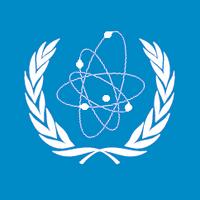 Things have been coming to a head recently regarding North Korea and Iran, and these two cases, separately but concurrently, have highlighted the failures of the nuclear non-proliferation regime, of the Nuclear Non-Proliferation Treaty (NPT), and of the American and European policies in this respect.
Things have been coming to a head recently regarding North Korea and Iran, and these two cases, separately but concurrently, have highlighted the failures of the nuclear non-proliferation regime, of the Nuclear Non-Proliferation Treaty (NPT), and of the American and European policies in this respect.The six-party talks hosted by China (which exist mostly as a multilateral cover for bilateral talks between the USA and North Korea) have once again hit a sticking point on the provision of peaceful nuclear power to North Korea (see here, here, and here); this time with the North Koreans asking for a light-water reactor. Disregarding for the moment the tricky questions of whether they deserve such a power plant, and who will actually pay for it, the North Koreans can claim legitimacy for this demand. The NPT (of which North Korea is not currently a party, but which broadly represents global consensus) reserves the right for states parties to develop nuclear energy, but not nuclear weapons. Yet North Korea, like Iran and many others before them, has previously used such civilian facilities as a front for weapons programmes, and is one of the least-trustworthy states around, leading to America's current refusal to allow even a light-water reactor, which would be much harder to use for producing weapons-grade material.
Iran, while probably 10-15 years away from building a nuclear weapon, has been more disquieting. Iranian politicians from the previous and current governments have repeatedly reiterated their claims the Iran has the right to develop nuclear weapons, and have also claimed the right to control the whole nuclear fuel cycle, sparking fears that the uranium by-product of their heavy-water reactor (being developed at Bushehr with Russian assistance) could be further enriched at Natanz and then used in nuclear warheads. Why is this more worrying? Basically, because the North Koreans have generally used their weapons programmes as bargaining chips, while the Iranian response to revelations about theirs has been a stubborn refusal to compromise, resulting in the resumption of uranium processing at Isfahan. This latter development largely derailed the negotiations with the EU3 (the UK, France and Germany), who had been trying to coax Iran away from such activities. Iran wants the weapons, not the fruits of any negotiations. So Iran may be referred to the UN Security Council by the IAEA, and may face sanctions, if both the Chinese and Russians do not use their veto. The Americans are, of course, pushing for such a development. However, the IAEA has been reluctant to make such a move, and the support of the Chinese and Russians is far from assured.
So, what is to be done? While many analysts decline to form policies on both cases together (given their separate natures) the cases both show the need for a new approach and new momentum in reform of the nuclear non-proliferation regime. The Americans, by far the biggest player in the arena, have largely rejected the NPT, given its failures and its acceptance of civilian power for all states parties, in favour of alternative methods. So India (not a signatory to the NPT) has now been rewarded with nuclear cooperation, and American pronouncements against both Iran and North Korea largely ignore the treaty. This manages to further weaken the treaty, which still remains the global consensus. Instead of seeking to treat potential weapons proliferators on a case-by-case basis, America should instead try to reform the NPT. No doubt this will lead to reiterations of calls for real disarmament from the nuclear powers (and not rearmament, see below) in the UN, but the USA would still be able to largely ignore such calls. With any hope, a stronger NPT would emerge, possibly incorporating the additional protocol (which bolsters the inspections side of things) as a mandatory feature, and possibly even restricting dodgy states' access to nuclear power (although definitions of dodgy remain elusive, and the possible supply of power to such countries from neighbouring states as a compromise would be extremely difficult).
Whatever the details of a future reform of the NPT, one thing remains: The USA can go it alone in their non-proliferation efforts, spending a lot of time and resources on each individual case. But if they want these efforts to be more effective, they need the world to go with them in prodcuing effective solutions to these problems; they need to shape global opinion by engaging wholeheartedly in a debate aimed at countering nuclear proliferation from a global, multilateral perspective. States developing nuclear weapons can afford to look away when America berates them; but they could not do so if America had the weight of global opinion behind them.
rickphillipsuk
No comments:
Post a Comment